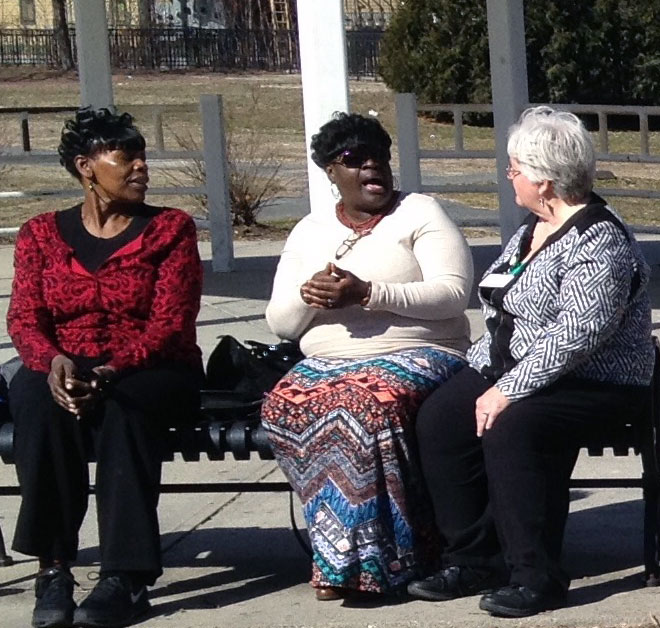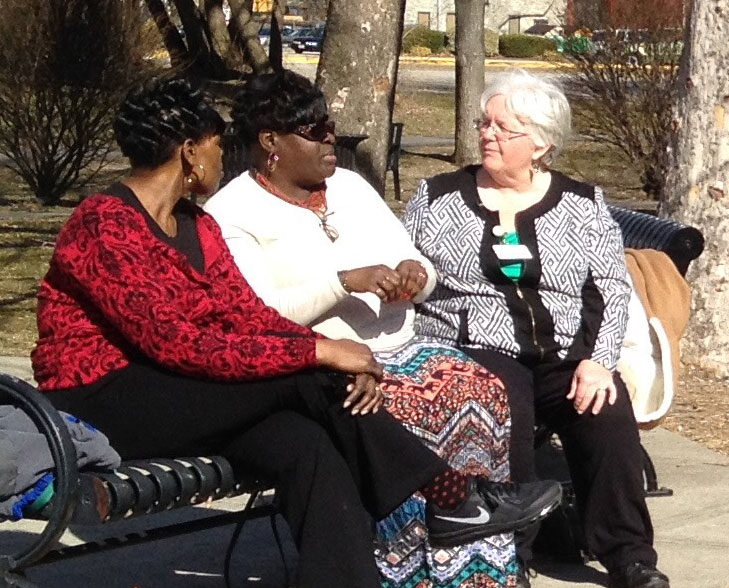A Member Turns to Neighborhood for Help
Ask Neighborhood member Francine for one word to describe how she felt about herself 18 months ago and she doesn’t hesitate.
“Worthless,” she says. “One word: worthless, from head to toe.”
A huge part of the problem: Francine was battling a drug addiction that had consumed nearly half of her life.
“I had been using, and it seemed like I was never going to stop,” she explains. “The more I tried to say no, the more I put it down, the more it came. The more it came.”
“Francine has had an array of needs,” according to Neighborhood Health Plan of Rhode Island’s Member Advocate Jackie Dowdy. “She had a lot of things going on medically; she had some things going on with substance abuse. She needed help with pain management.”
After the sudden death of her best friend left Francine even more vulnerable, her cousin offered a piece of advice: Call a woman I know at Neighborhood; she can help you.
“And she gave me her name and I immediately called her and I left a message on Patsy Cunningham’s answering machine. I might have been going 50 miles a minute, you know what I mean,” Francine says. “Because by then, I had lost my best friend, I was grieving, I was drugging. I felt all alone, even with my family living in my building.”
Next came something Francine never expected. Patsy Cunningham, a registered nurse and medical case manager at Neighborhood, actually showed up at her door.
“Within two days she was at my apartment, talking with me as long as I needed, telling me about grieving groups, how some things might be,” says Francine.

Cunningham also connected Francine to Neighborhood social worker Martha Lawton as she herself addressed Francine’s basic needs. Those included a new shower seat to help her bathe and a special dispenser to help her manage her many prescription medications.
“We try to help in the small ways, the practical ways” that can make a big difference in someone’s life, Cunningham explains.
Cunningham also ironed out Francine’s longstanding transportation troubles, so getting to her doctors’ appointments is much easier. That means Francine is now in a better position to manage her rheumatoid arthritis, fibromyalgia and her neuropathy.
Bigger still, about six months ago, Francine entered treatment to end her 26-year substance abuse problems.
“The 18th of each month is a new sobriety date,” Francine says, beaming. “I don’t want to use and I don’t want to pick up. I am as happy as one can be really seriously in recovery.”
“Francine worked hard and is continuing to work hard to be that kind of person that she wants to become,” observes Member Advocate Jackie Dowdy.
That process, however, is far from easy. By her own admission, Francine can be a difficult person to help.
“Francine is a bit of a roller coaster ride,” jokes Cunningham.
“Right now there are times when she’ll call me and she’s really upset and she’s not wanting to cooperate and she doesn’t want to do what she’s supposed to do,” says Dowdy. “Sometimes she’ll hang up on me. And I’ll call her back, and she’ll hang up on me again. But I’ll call her back again, too. And I’ll keep doing it until I get her to talk to me about what’s going on. Because she’s doing too well to turn back now.”
Francine will also admit that the constant reminders from Neighborhood are what keep her going.
“It makes me feel so loved, so wanted, so appreciated, like I’m not that piece of junk that I thought I was,” Francine says.

Advocating for a member who seems to reject the help is par for the course, Cunningham notes. “Well, it’s a long-term thing,” she says. “We’re not in there just to talk to them and say, ‘OK, you’re all set. Goodbye.’ She’s my member now — for as long as I’m there and as long as she’s there.”
Cunningham, who has worked at Neighborhood for almost three years, appreciates the idea that she and her colleagues regularly go above and beyond what’s expected of a tradition health insurer.
“I feel like we are more of a social service, nursing agency,” Cunningham says. “I sure don’t feel like someone who works at an insurance company!”
Dowdy agrees. “It’s a lot easier to get hung up on and say you know what, I’m done with you. And a lot of places would do that, too. But I think that Neighborhood as a company is really invested in our members. We’re invested in seeing them do well. It’s more than a health plan — which is why we do so much.
“We understand people and we know how important it is for people to try to live their lives on life’s terms and to just be happy and to be successful,” Dowdy adds.
As far as Francine goes, the journey continues – particularly when it comes to pain management. But Dowdy says the immediate changes since Francine decided to stop using drugs are dramatic.
“When you see Francine [today], you’ll see a different person than the person that I used to know,” Dowdy says, smiling. “Physically, her appearance is different. She’s beautiful! She’s become a very different person. It’s important for her to take care of herself and it’s important for her to look good; it wasn’t important before.”
Francine’s case manager sees those same changes.
“She’s become so dynamic in her own life,” Cunningham says. “It’s a real pleasure to have worked with her and to continue to work with her.”
Now, ask Francine for one word to describe how Neighborhood Health Plan of Rhode Island makes her feel and she doesn’t hesitate.
“Wonderful,” she exclaims. “Loved! Really, really truly does!”